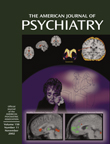The authors are a wife and husband team. She is a retired recreation therapist and an ordained Protestant minister; he is a retired computer scientist. They have written an intimate biography of a woman who was one of the most important public health figures of the twentieth century. Mrs. Marty Mann was a pioneer in the understanding and treatment of alcoholism from the time that she was well into recovery in her 30s until her death in 1980 at age 76. She was one of the first women to embrace Alcoholics Anonymous (AA) and achieve long-term sobriety through it. She grew up as a wealthy child and young woman who was attractive, smart, and talented, and she was successful in spite of a bout of pulmonary tuberculosis in her late teens. In her late 20s she became seriously alcoholic and lost nearly everything. She attempted suicide. She fell or jumped from a second-story window and spent months in orthopedic care, where she managed to continue drinking. She relapsed several times during her first year of recovery and again, briefly, after about 20 years of sobriety.
In spite of recurring depression throughout her adulthood, Mrs. Mann devoted her life to spreading information about alcoholism and fighting the stigma that is attached to it. She founded the National Committee for Education on Alcoholism, which became the National Council on Alcoholism and is now the National Council on Alcoholism and Drug Dependence. She traveled extensively, speaking to groups and helping to start AA chapters and branches of the National Council on Alcoholism in the United States and abroad. She was a charismatic public speaker and gave hundreds of lectures. She spoke to and served as consultant to congressional and state legislative committees. She cultivated and enlisted the help of the rich and the famous, many of whom were problem drinkers or had an alcoholic in the family.
During most of the twentieth century the prevailing psychiatric thinking about alcohol abuse was that underlying emotional conflicts were the problem. The favored treatment approach until recent decades was to try to uncover and resolve those conflicts through psychotherapy and psychoanalysis. Meanwhile, much of the public saw alcoholism as a sign of a character flaw or moral corruption. Today, 12-step fellowship in AA is widely regarded as the gold standard for treating alcohol addiction, and at least some people are aware that it is a disease.
I found that reading about Mrs. Mann’s life was a pleasant way of learning the history of the disease and its treatment. She was involved in the early controversy about anonymity because of her zeal to tell the world about AA and to let it be known that she was both an alcoholic and an AA member. The disease model was controversial, even in the medical community, in the early days of her career, but she tirelessly advocated for alcoholism as an illness with roots in genetics and biology.
Marty Mann was married briefly in her 20s but was a lesbian for the rest of her life. Mann was her maiden name, and she used the Mrs. title to protect her privacy. Society’s prejudice against homosexuality was as strong as it was toward alcoholism during the 1940s and 1950s when she and the National Committee for Education on Alcoholism were struggling to survive. She led a high-profile life, but it seems that the McCarthyism of that time was balanced somewhat by the relative absence of tabloid journalism.

